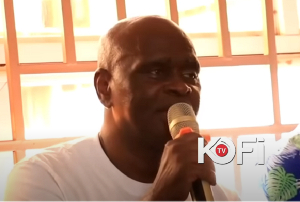Opinions of Sunday, 23 March 2014
Columnist: Collinn
Mr president - let’s not re-invent the wheel
REVISITING THE PSI; DIP and RDI (Presidential Special Initiatives; District Industrialization Program & Revitalization of Distressed Industries)
President Mahama’s call to make every day a “Made in Ghana Day” in his 57th independence anniversary celebration address to the nation was tacit support of Alan Kyerematen’s popular “Made in Ghana Friday Wear” initiative established during the previous NPP administration. Alan Kyerematen (former minister of Trade, Industry and Presidential Special Initiatives) in a recent response at the just ended Daily Graphic-Fidelity Bank Breakfast Meeting, affirmed the President’s call with the lucid recommendation that the “productive base of Ghana’s economy should be expanded to deal with the structural deficiencies of the nation’s economy”. I believe it was prudent for Mr Kyerematen to put politics aside and for the greater welfare of the nation, support the president in this way.
A major point of criticism of the President is his penchant to roll out initiatives without comprehensive consultation, both within and outside his political and administrative circles. He has the opportunity now to demonstrate bi-partisanship by revisiting Mr. Kyerematen’s Presidential Special Initiatives (PSI), District Industrialization Program (DIP) and Revitalization of Distressed Industries (RDI) program. These policies evolved within a broader strategy for sustainable national economic development and Alan’s personal intellectual and administrative contribution to their successful implementation cannot be overemphasized. A call for bi-partisan collaboration is not only prudent but practical. The President must diverge from successive governments’ politically motivated cycle of policy ‘dismantling and repackaging’ in order to effectively build on previous, sound policy foundations such as the PSI, DIP and RDI. The President must not ‘reinvent the wheel’.
PSI The PSI was the first major and comprehensive attempt by an administration to restructure the nation’s economy by weaning the nation off its dependence on the two traditional sources of foreign exchange namely Cocoa and Gold. The initiative identified 3 projects as catalysts for the diversification: Cassava, Palm Oil production and Garments & Textiles.
Opponents of Mr. Kyerematen within both the NPP and NDC administrations have castigated his efforts, some referring to him as the “cassava minister”. However few of these opponents have bothered to study the initiative in its entirety and have failed to see its huge potential. In fact Mr. Kyerematen was only allowed to “shepherd” his vision for a short time. Through the efforts of ‘Inside Men’, the initiative was prematurely divorced from the Ministry of Trade and Industry and subsequently dived up. However in the relatively short time that Mr. Kyerematen was at the helm of affairs, the following successes were achieved:
Cassava Initiative The first industrial starch manufacturing plant in the country (Ayensu Starch Company Limited) was established at Bawjiase, Central Region with the capacity to produce 20,000 tons of high grade cassava starch per year. Over 8,000 farmers were enrolled to participate in farming operations to feed the factory. Long-term orders for cassava starch were secured from Nestle Worldwide operations, based on successful product testing and a comprehensive technical audit of the factory.
It may be of interest to readers to note that in the business news of March 13, 2014, members of the Ayensu Cassava Farmers Association (ACFA) expressed the need for the government to allow them to own adequate shares in the Ayensu Starch Company (ASCO). The chairman of ASCO, Mr Sammuel Dodd, referred to the PSI document establishing ASCO, that members of ACFA if they increased their shares could eventually take over and manage the factory. The request and ensuing dialogue between the ACFA and ASCO is a vindication of the quality training the farmers received when they were first enrolled in the initiative. A lot of time though has been wasted in the maturation of the project because of politics. In addition, some neighboring countries who visited and saw the potential of the initiative are now far ahead of us in benefitting on the International Market.
Palm Oil
30 new nurseries were established in 5 regions, with the production capacity of 4 million seedlings per year. 200,000 hectares of land was mobilized as equity from landowners under the Equity Swap scheme. Modern Oil Processing plants were on the way to being established in 5 strategic locations. The result of all this was the potential employment of 450,000 farmers and workers. Just as was the case with the cassava initiative, commercial foreign orders were lined up to supply pharmaceutical companies and other industries which use palm oil as a base in their products.
Garments & Textiles
The PSI on Garments & Textiles resulted in the creation of over 3,200 jobs through 15 new companies which were established. Over 7,000 sewing operators were trained through Clothing Technology and Training Centers established in Accra and Kumasi. The African Growth and Opportunity Act (AGOA) of the United States Congress opened up US markets for Ghanaian products. The Sleek Garment Factory in Accra was able to export in a year, 75,000 casual rayon shirts valued at over 200,000 USD to a US Departmental Store.
DISTRICT INDUSTRIALIZATION PROGRAM (DIP)
The DIP was created to bolster the growth of industries in various parts of the country which had a raw material base for the intended industry. The goal was to have at least one flagship commercially-viable industrial enterprise, in each of the 138 districts of Ghana, in partnership with communities, the private sector, and the district assemblies. Over 70,000 people were projected to be directly employed in the first 2 years of the program’s operations.
REVITILASATION OF DISTRESSED INDUSTRIES PROGRAM (RDI)
Many of the factories bequeathed to the nation from the Nkrumah era were left to ruins. Political and social commentators continue to debate the reasons for the collapse. The RDI initiative was designed to assess the viability of all those industries and make recommendations for those which could be resuscitated. To pilot this initiative, the former Juapong Textiles (Volta Region) was re-structured under the name of Volta Star Textiles Limited. The Tomato factory at Pwalugu (Upper East Region) was successfully revived under a public-private sector partnership under the name of Northern Star Tomato Company Limited. At full operation, the 500-metric ton capacity plant could process about 25 articulated truck-loads of tomatoes daily into paste in drums for canning at private food processing factories.
The RDI program hit some bumps largely due to management and socio-historic challenges. Nonetheless the net effect of this initiative was a relatively significant improvement in the economic lives of the people of Peki, Pwalugu and their surrounding communities through job creation.
BUILDING ON THE FOUNDATION
The President has an opportunity to publicly embrace the PSI, DIP & RDI initiatives and call for a national discussion, involving all the major stake-holders, to make his dream of the “Made in Ghana” agenda a reality without having to re-invent the wheel.
In a thought-provoking column on the “Made In Ghana” mantra written by Professor Harrison P. Adjimah, a lecturer and economist at the Ho Polytechnic on Ghanaweb (March 9, 2014), he asserts that “…it is right to demand that the government quickly come out with specific policies and strategies to pursue it [Made in Ghana Agenda], if the president really means business.” – There is already a plan! The President can take the initiatives discussed above and implement them now! TIME WILL TELL!
Entertainment











